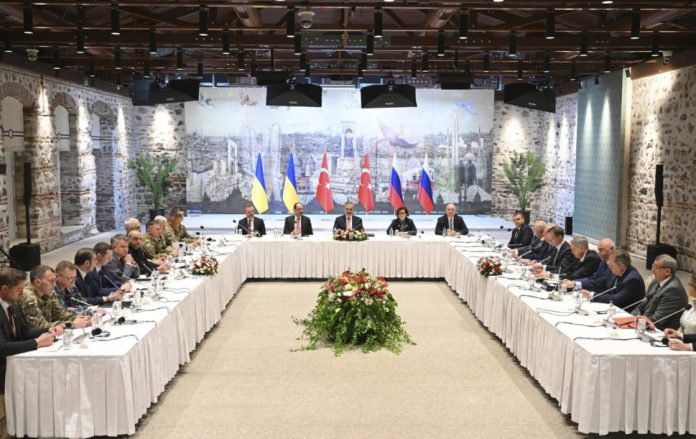Russian and Ukrainian officials arrived in Istanbul, Turkey, on Monday for the second round of direct peace talks since 2022, but the sides remain far from agreement on ending the war, as fighting is intensifying.
The Ukrainian delegation will be led by Defence Minister Rustem Umerov, while the Russian delegation will be led by Presidential Aide Vladimir Medinsky. The parties will present their draft ceasefire memoranda.
The composition of the Ukrainian delegation, again headed by Defence Minister Umerov, has changed slightly since May 16. Oleksii Malovatskyi, head of the International and Operational Law Department of the Central Legal Directorate of the General Staff of the Armed Forces of Ukraine, has not been included.
The Russian delegation arrived in Istanbul the day before, on June 1. Its composition remained unchanged: presidential aide Vladimir Medinsky, Deputy Minister Mikhail Galuzin, Head of the Main Intelligence Directorate of the General Staff Igor Kostyukov and Deputy Minister of Defence Alexander Fomin.
Expected outcomes and hopes
During the talks, the parties will discuss draft memoranda on a ceasefire. Ukraine submitted its document to Russia in advance, and the United States also received it.
Kyiv’s proposals largely repeat its previously stated positions: a complete ceasefire for at least 30 days, the exchange of prisoners and the return of Ukrainian children in Russia, with the ultimate goal of the plan being a personal meeting between Ukrainian president Volodymyr Zelensky and Russian president Vladimir Putin to conclude a final agreement. At the same time, Ukraine does not recognise the loss of territory, is not ready to limit its armed forces and insists on reparations. The current front line is proposed as the basis for further territorial negotiations.
By proposing such a “plan” at the negotiations in Istanbul, Kyiv is trying to establish an exaggerated starting position, clearly leaving room for subsequent concessions in exchange for diplomatic or economic preferences from its allies.
The Russian side continues to push its agenda against this backdrop. On May 22, Putin announced the creation of a “buffer zone” to ensure the security of border areas, stressing that this task is currently being carried out by the armed forces.
The head of the Russian delegation, Vladimir Medinsky, said upon arrival in Istanbul that he would present Russia’s position on the Ukrainian settlement in detail on June 2.
Foreign Minister Sergey Lavrov discussed the upcoming talks with US Secretary of State Marco Rubio the day before. This time, President Donald Trump did not send an American delegation to Istanbul.
The first meeting between representatives of Moscow and Kyiv in three years took place on May 16 in Istanbul. The parties agreed to carry out a large-scale prisoner exchange (1,000 for 1,000) and to present their vision for a possible future truce.
